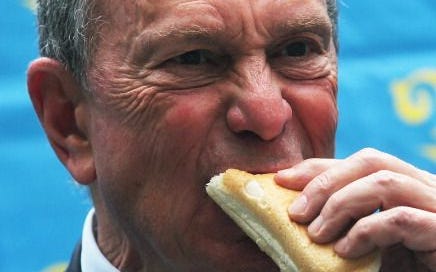Our votes don’t matter. I’m sorry, but it’s true. You have never once been a decisive vote, and you’ll never be. You may have voted for a democrat, a republican, a green partier, a libertarian, an orangutan, the cryonically preserved head of Richard Nixon, or any other candidate, in every election since you were 18, and it would not have changed the election’s result one whit. You could have switched parties, voted third party, or voted for anyone at all. It will not make a difference.
The math demonstrating this is as follows. Let us suppose there are 2n+1 voters. (We have the +1 so as to avoid ties.) We shall regard the probability of voting for a thing as being p, and the probability of voting against as 1-p. Then you can apply the binomial theorem, (1/√𝝅n)(4p-4p2)n and find the probability of you being the decisive vote. In essence, we’re finding the probability that there will be a one vote difference. The probability that there is a decisive vote decreases as the number of voters get larger, and as the probability of a given person voting for x gets further away from .5.
The probability gets very small, very fast. Once you get into the realm of a state election, even at very close probabilities, the number flies off the calculator. (For example, when p=.51, and n equals 2 million, the probability it comes down to a decisive vote is about 10 to the power of -100, or one in a googol. HT: Bryan Caplan) Considering that the number of particles in the universe is estimated at 10 to the power of 80, and that’s one hundred quintillionth the size of a googol, I feel it’s safe to say your chances of influencing the election are small.
The two parties are, nonetheless, very interested in winning elections [citation needed]. In the 2020 cycle, the parties spent $14.4 billion, of which $8.5 billion was spent on advertisements. This is all incredibly inefficient. Spending has very, very little impact on voting behavior. According to Coppock, Hill and Vavreck, 2020, advertisements have a small effect on voter behavior, but not much. Levitt, 1994 looks at races where the same candidates faced each other in two different elections, and then compares variation in spending. He finds that an increase of $100,000 in spending relative to the competitor is associated with the spender getting .33% percentage points more of the vote. These are paltry returns, and moreover they come in an era when spending on campaigns was much smaller than today, and elections were less partisan and more open to impressions based on the individual, not the party in general. Further, consider that funding is correlated to the candidates perceived strength. Self funded candidates, who are able to simply donate to themselves regardless of how effective they may be, provide a window to see the effects of money without extraneous correlations. I quote from “Self Financed Candidates in Congressional Elections” by Jennifer Steen, who writes, “Self financing does give some candidates an edge, but the average effect is quite small. Campaign contributions appear to be a much more productive means of financing campaigns…”(p.14). The prime example of this must surely be Mike Bloomberg, who spent $1 billion dollars on his short lived campaign. Despite the absolutely, completely true fact that he bought every advertisement on Youtube in January 2020 (ok, it might not be true, but it’s pretty darn truthy) he won American Samoa, and nothing else. I think Ansolbahere, de Figueiredo, and Snyder, 2003 say it best in their puckishly titled paper, “Why is there so little money in politics?” “Campaign contributions should be viewed primarily as a type of consumption good, rather than as a market for buying political benefits.”
This is not to say it has no effect whatsoever. Gordon, Lovett, Luo and Reeder find that television advertisements may have swung the 2000 election to Bush, for example, but the 2004 election was too far apart for any of it to matter. They simply agree that it has very, very small effects. So here’s my modest proposal for what to do about it. Stop making campaigns inefficiently launder their money through advertising. Let them pay us directly.
Instead of dickering around, funding television executives and billboard operators, let them throw their money at us! If the money spent on television ads alone was spent on registered voters instead, we’d each get 35 bucks. Most people would pay to not see Mike Bloomberg ever again. Now about if he were to pay you to not see him? We’d also see a lot of good fun. Using my top secret data, I predict a 457% in barbecues due to legalizing paying voters. Instead of a chicken in every pot, let’s aim for a hamburger and two beers in every belly, with a Chevy Silverado raffled off to a lucky winner. Why not? Spending influences us very little, and our votes matter still less - if people want to show how much they love their team by donating, let’s at least get the fun kind of party out it.
It’s just something to consider. :)


